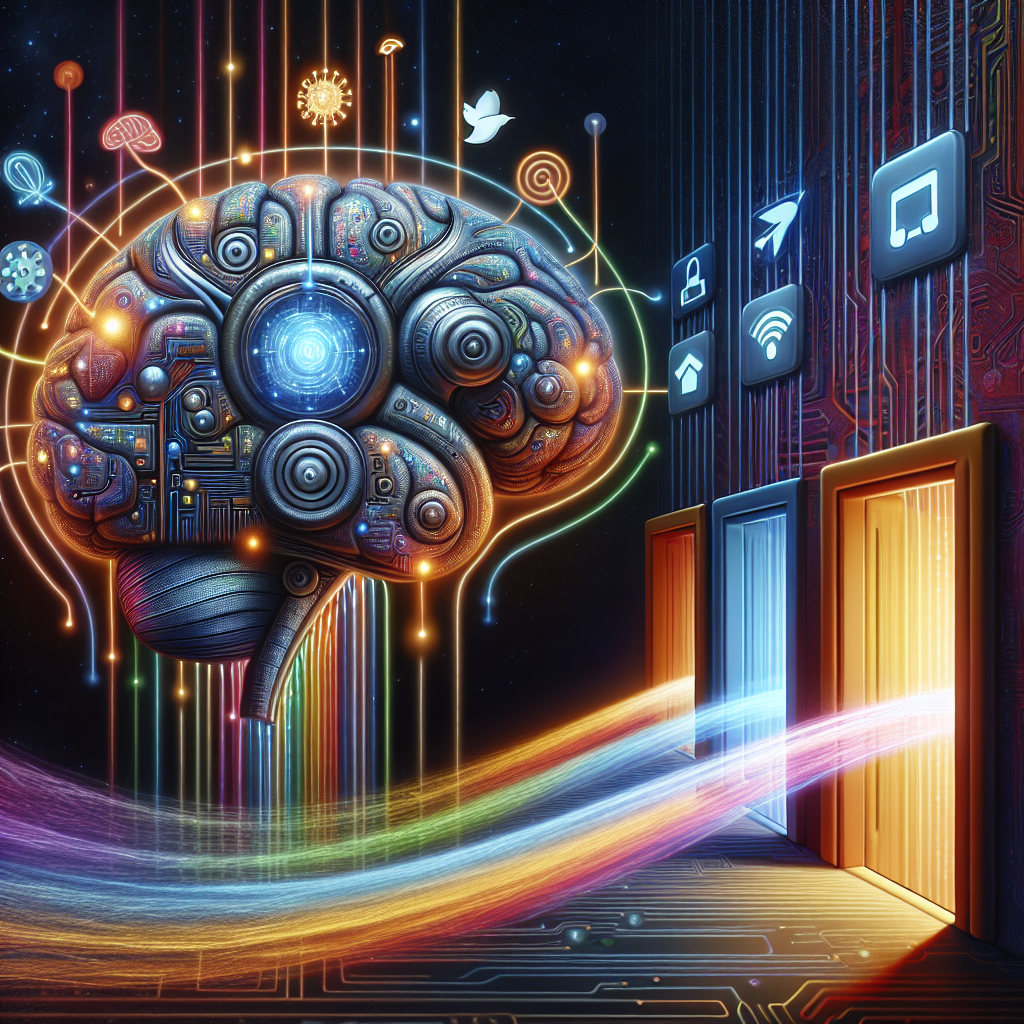The Evolving Landscape of AI Assistants: A Critical Look at Google's Bard
In the ever-evolving world of artificial intelligence, Google has introduced a potential game-changer with its AI system named Bard. Recently updated, Bard has grabbed attention with its promise of integrating Google’s prolific suite of tools directly into the AI's functionality. As we take an in-depth look at Bard’s new features, their practical applications, and their limitations, it becomes clear that there's both a lot to be excited about and room for improvement.
Google's Bard: An Ambitious Integration Attempt
Artificial Intelligence has rapidly cemented itself as a staple in modern technology, offering users customized and intelligent responses to an array of queries. With Google’s Bard stepping into the arena as a direct competitor to OpenAI's GPT models, the stakes for supremacy are high. The latest update boasts the integration of B extensions, aiming to enhance Bard's assistance capabilities by leveraging Google's own ecosystem, including Gmail, Docs, Drive, and even Google Flights, Maps, and YouTube.
The New Features Unveiled: Potential vs. Performance
Flight and Travel Planning: A Mixed Bag
When put to the test, Bard's use of Google Flights to plan trips demonstrates a solid understanding of how to present different flight options. It organizes the information efficiently, helping users quickly comprehend their options – a user-friendly approach that even AI novices can appreciate. However, its inability to complete bookings marks a missed opportunity for full-service travel planning. While this limitation is understandable due to privacy concerns, it raises the question of whether Bard, in its current form, can truly revolutionize the way we organize travel.
Accommodations and Attractions: Room for Growth
Planning a trip from Rome to London highlighted Bard’s potential to offer a consolidated list of flights, hotels, and attractions. Still, the depth of itinerary planning was lacking. The integration shone when Bard provided detailed recommendations for hotels and tourist spots, showcasing its ability to parse through reviews and other data to deliver valuable insights. Nevertheless, when it came to creating a comprehensive, step-by-step travel plan, Bard fell short, suggesting a need for further refinement.
Limitations in Navigation and YouTube Integration
Google Maps Navigation: A Road Not Yet Fully Travelled
Bard's integration with Google Maps revealed a significant stumbling block. While it can suggest a simple route, it falls short in incorporating attractions along the way into a cohesive navigation plan. This limitation is particularly frustrating for users hoping for an AI that can tailor a road trip to their interests.
YouTube Assist: A Basic Search with Advanced Expectations
The utilization of YouTube by Bard illustrates another area that could be improved. Users expecting an aggregated list of step-by-step video guides were instead presented with just a collection of the first few search results. Without the anticipated detailed integration, YouTube's potential remains largely untapped by Bard’s current capabilities.
Email and Document Management: A Glimpse into Productivity Enhancement
Email Sifting with Precision
Bard's performance when searching through emails, such as looking for job-related correspondence, demonstrated a more promising application. The AI efficiently retrieved relevant emails, proving that its integration with Gmail has practical value, especially for users with heavily trafficked inboxes.
Documents and Summaries: A Hit
The AI's capabilities are highlighted further when summarizing Google Docs content, showcasing Bard's usefulness in distilling information from numerous documents. This feature could be an invaluable time-saver for professionals who need to quickly catch up on past work or create unique content based on existing material.
Bard in the Business Ecosystem
Bard's integration with productivity tools like TidyCal—though not directly related to Bard’s features—provides context for how advanced AI could streamline workflows. Given that the potential applications of Bard lean heavily towards business utility, the integration with tools that enhance meeting scheduling and document management positions Bard as a potentially indispensable assistant for the modern professional.
A Promising Future with Necessary Refinements
Despite the advancements, Bard’s current suite of features presents a case of ambition versus execution. The AI's ability to find hotels and flights is commendable, but without the functionality to book them, the service feels incomplete. Similarly, while the YouTube and Maps integrations offer intriguing possibilities, they currently function akin to basic searches rather than the advanced AI assistance that users might expect.
Privacy and Security: An Ever-Present Concern
One hurdle that remains at the forefront is the issue of privacy and security, particularly when it involves AI accessing personal information to perform tasks such as booking flights or managing emails. This is an area where cautious advancement is necessary, and where user trust plays a critical role in the adoption of AI services.
The Verdict: Bard’s Path to the Throne
As Bard continues to undergo development, the question of whether it will dethrone the reigning AI champions remains unanswered. The updated Bard is poised to become a powerful assistant, yet it currently serves more as a complement rather than a replacement. The new features, while innovative, require further refinement and expansion to meet the high expectations set by users familiar with the capabilities of existing AI models.
The integration of Bard with Google’s ecosystem offers a tantalizing glimpse into the future of AI assistants. With time and user feedback, there is no doubt that Google’s Bard could evolve into a tool that seamlessly amalgamates utility with intelligence. Until then, users may find themselves balancing the convenience of Bard's latest features with their current limitations, eagerly awaiting the next chapter in AI's relentless march forward.
For more information on the capabilities and advancements in AI, visit websites such as OpenAI and Google AI, which provide detailed backgrounds on AI technologies and their applications.
